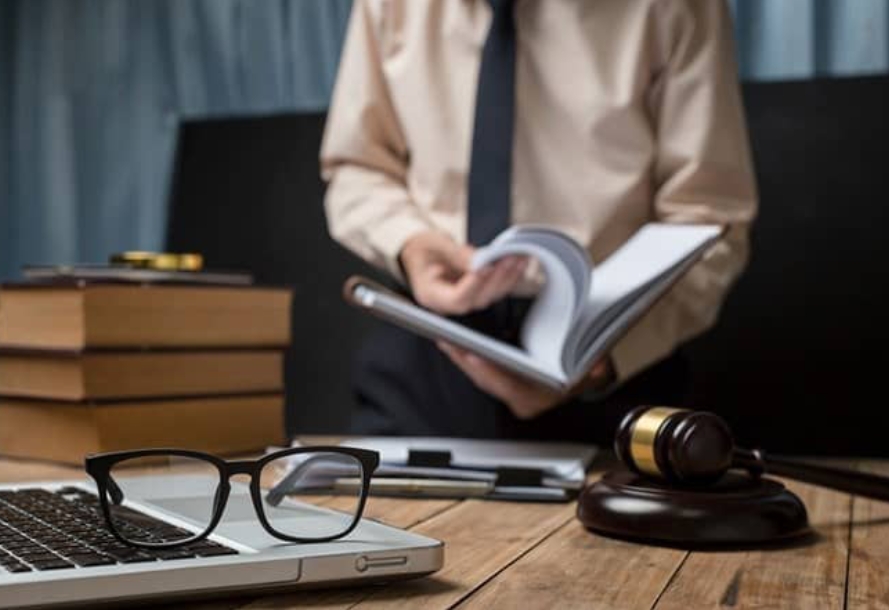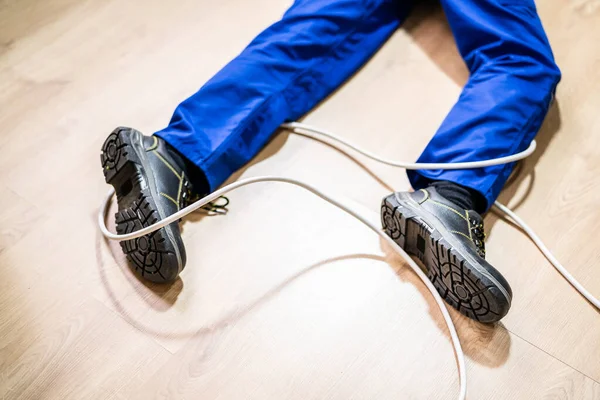Accidents can happen when we least expect them, and when they occur on someone else’s property, it can be particularly distressing. Slip and fall injuries are among the most common incidents on private or public premises, ranging from retail stores to private residences. In such situations, understanding your rights and taking the appropriate steps is crucial. The key actions to take if you find yourself injured on someone else’s property, emphasizing the importance of seeking legal assistance from a slip and fall injury attorney.

The Critical First Steps
Immediately following a slip and fall incident, it’s essential to prioritize your well-being and take a series of actions to protect your rights and potential claims. Here are the critical first steps to consider:
1. Seek Medical Attention: Your Health Comes First: The most immediate concern after a slip and fall accident is your health. Seek medical attention promptly, even if your injuries seem minor initially. Some injuries may not manifest symptoms immediately, and a medical professional can assess the extent of your injuries and provide necessary treatment.
2. Document the Scene: Gather Evidence: If possible, document the scene of the accident. Take photographs of the area where the incident occurred, including any hazardous conditions such as wet floors, uneven surfaces, or inadequate lighting. These visual records can serve as valuable evidence later in your case.
3. Identify Witnesses: Collect Contact Information: If there were any witnesses to the incident, obtain their contact information. Witness testimonies can provide crucial support for your case, corroborating your version of events and establishing liability on the part of the property owner or manager.
4. Report the Incident: Inform the Property Owner or Manager: Report the incident to the property owner, manager, or another responsible party. Ensure that they document the incident and request a copy of the report for your records. This can be important when building a case for negligence.
5. Preserve Evidence: Retain Clothing and Footwear: Preserve the clothing and footwear you were wearing at the time of the incident. They may serve as evidence of the conditions at the scene, such as a torn shoe on an uneven surface or wet clothing from a spill.
The Importance of Seeking Legal Assistance
While taking these immediate steps is crucial, consulting with a Personal Injury Attorney is equally vital to protect your legal rights and maximize your chances of receiving fair compensation for your injuries. Slip and fall cases can be complex, requiring a thorough understanding of premises liability laws and a strategic approach to build a compelling case.
Why Consult a Slip and Fall Injury Attorney?
- Legal Expertise: Navigating Complex Laws – A slip and fall injury attorney specializes in personal injury law and, more specifically, premises liability. They possess the legal expertise to navigate the complexities of these cases, helping you understand your rights and the potential legal avenues available to you.
- Investigation and Evidence Gathering – An attorney can conduct a thorough investigation into the circumstances surrounding your slip and fall incident. This includes gathering evidence, interviewing witnesses, and consulting with experts to establish liability on the part of the property owner or manager.
- Negotiation with Insurance Companies – Experienced slip and fall injury attorneys are skilled negotiators when dealing with insurance companies. They can advocate on your behalf to ensure that you receive fair compensation for medical expenses, lost wages, pain and suffering, and other damages.
- Litigation Representation if Necessary – In cases where a fair settlement cannot be reached through negotiation, a slip and fall injury attorney can represent you in court. They will present your case persuasively, utilizing their legal expertise to argue for your rights and seek the compensation you deserve.
The Role of Negligence in Slip and Fall Cases
Central to many slip and fall claims is the concept of negligence. Property owners have a duty to maintain safe conditions on their premises. If they fail to address hazards or warn visitors about potential dangers, they may be considered negligent. Establishing negligence is a key element in building a successful slip and fall case.
- Proving Negligence: The Duty of Care – Property owners owe a duty of care to those who enter their premises. This duty involves maintaining a reasonably safe environment, addressing known hazards, and taking precautions to prevent accidents.
- Breach of Duty: Failing to Meet the Standard – If a property owner or manager fails to uphold their duty of care, it constitutes a breach of duty. This breach may involve actions such as neglecting to repair a hazardous condition or failing to provide adequate warnings to visitors.
- Causation: Linking Negligence to the Injury – Causation is a crucial element in a slip and fall case. It requires establishing a direct link between the property owner’s negligence and the injuries sustained by the victim. The attorney’s role is to present evidence that clearly demonstrates this connection.
- Damages: Seeking Compensation for Injuries – Successful slip and fall cases result in compensation for damages incurred by the victim. This may include medical expenses, rehabilitation costs, lost wages, pain and suffering, and other related damages.
In the aftermath of a slip and fall incident on someone else’s property, swift and decisive action is necessary to protect your rights and seek compensation for your injuries. While the immediate steps are crucial, consulting with a slip and fall injury attorney adds a layer of legal expertise to your case, increasing the likelihood of a favorable outcome. Remember, you don’t have to navigate the complexities of the legal system alone – a dedicated attorney can be your advocate and guide, ensuring that you receive the justice and compensation you deserve after a slip and fall accident.

